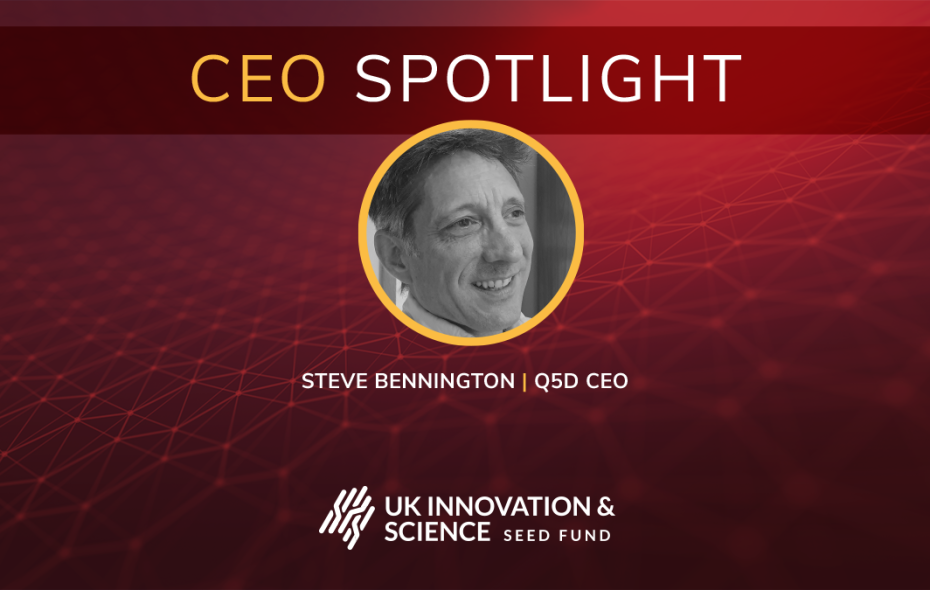
Steve Bennington, CEO of Q5D, speaks to UKI2S about his journey in science ventures and engineering.
• Prof Stephen Bennington founded and ran the hydrogen storage company Cella Energy for six years. He raised $10 million for Cella and prior to this, Stephen designed and built large scale scientific infrastructure, such as the neutron source for the UK, and is a visiting professor of Physics at University College London.
• Q5D’s mission is to automate the manufacture and assembly of wiring looms and develop machinery for automotive and aerospace industries.
You’ve had a broad range of experience as an academic, nuclear engineer and business leader. What are some of the key ideas you’ll be taking forward with Q5D?
1. The investment team - make sure investors are aligned with your goals.
It can take time to foster the right relationships with investors, but it is essential for longevity. There are many good VC companies out there and you want to engage those who understand the complexities of your business area. We've found a number who specialise in hardware for example.
2. Keep going – perseverance is important.
Even if you haven't quite got the business model right, take feedback and try to keep the company together over that learning period. Refine your business model into something that is an investable pitch.
3. Listen to advice.
Advice can come from all directions but it’s important to listen to it, especially from your investors and board members. I've been blessed with people who have great experience, so I do my best to balance and use the ideas that come my way.
What challenges have you faced being a UK hardware company?
Previously, hardware companies weren’t seen to be as scalable as software companies, but the context has changed. At the moment, American market valuations are extremely high and many American and Canadian investors are looking across the pond for more reasonable prices.
How have political and social issues such as COVID, Brexit and Ukraine affected your business?
Wider societal and geopolitical issues can impact your economic value and it’s important to keep your finger on the pulse. For example, uncertainty from COVID, Brexit, trade complications with China and the war in Ukraine, and even extreme weather events from climate change, shed light on supply chain issues and highlight our dependency on globalisation.
Automation and robotics are now higher on the agenda along with the idea of bringing offshore businesses back into America and Europe. This is particularly apparent for us and other labour intensive businesses, where it is possible to swap labour costs for robotic tools and localised automated processes.
What advice do you have for building a team in an engineering business?
Offer good salaries and create a positive, exciting atmosphere in the company. You can appeal to people from bigger companies if you offer opportunity for people to carve their own niche. A good benefits package and remote working is now standard.
There are different types of engineers you may want to hire at different stages. Initially you may look for those with a creative flare but later, you may hire people more entrenched in the product details and regulations for market.
How has UKI2S helped Q5D?
As well as the cash injection, the team’s wide investment experience and links with key contacts is extremely valuable. UKI2S has a representative on our dynamic board, and along with advice from other members, the quality of advice is refined and useful.